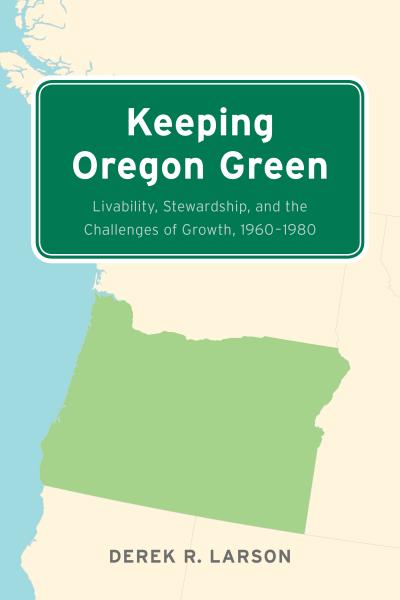
ISBN 9780870719172 (ebook)
Speaking for the River
James V. Hillegas-Elting
Since the late 1960s, Oregon has been at the forefront of environmental protection in the United States. The state generally, and Portland in particular, continue to have strong “green” credentials well into the twenty-first century. Within this forty year period of progress, however, the health of the Willamette River has been a consistent blot on the record. Willamette River water pollution has not gone away—the problem has, in fact, gotten much more complex. James Hillegas-Elting’s book, Speaking for the River, provides a historical look at this dilemma.
Willamette River cleanup efforts between 1926 and 1975 centered on a struggle between abatement advocates and the two primary polluters in the watershed, the City of Portland and the pulp and paper industry. Beginning in 1926, clean streams advocates created ad hoc groups of public health experts, sanitary engineers, conservationists, sportsmen, and others to pressure Portland officials and industry representatives to cease polluting the river. By the late 1960s, these grassroots initiatives found political footholds at the state level. As governor between 1967 and 1975, Tom McCall took the issue of environmental protection personally, providing the charisma and leadership that was needed to finally make substantive progress toward cleaning the Willamette.
Speaking for the River is the first book to describe the historical roots of Willamette River pollution, providing important context for understanding the political, fiscal, and technological antecedents to the present-day conundrum. Hillegas-Elting’s contribution to the academic literature on environmental and urban history in Oregon will be welcomed by policy makers, environmentalists, and concerned citizens alike.
About the author
JAMES V. HILLEGAS-ELTING is an independent consulting historian specializing in nineteenth and twentieth century environmental topics. He seeks to understand the systems humans create and maintain to refashion their environment in alignment with their values and aspirations. His consulting work on these topics has included research related to Superfund investigations and archaeological cultural resource management efforts. He holds a Master of Arts degree in history and a certificate in geographic information systems (GIS). Speaking for the River is his first book.
Read more about this author




